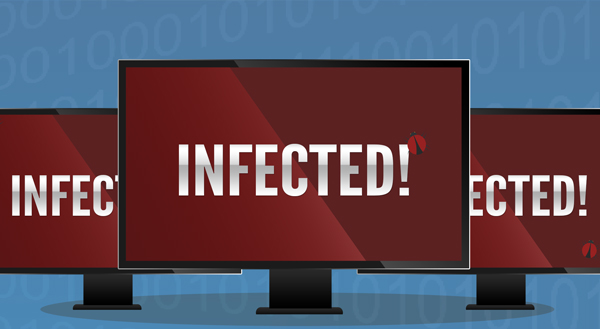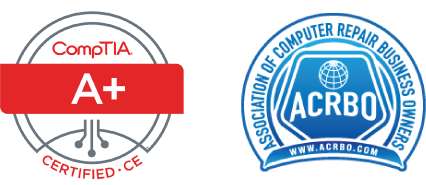
The term “virus” is often used to describe many different types of infection a computer might have. Virus, when used as a blanket term, can describe any number of potential computer programs. What these programs have in common are they are typically designed to cause damage, steal data, or spread across the network.
Malware describes software designed to act maliciously on a personal computer. The name ‘malware’ is a shorthand for ‘malicious software’ and describes exactly what it is. A computer virus is a single type of malware that can cause harm to your PC, but it is only one of many.
Adware
Short for advertising-supported software, adware is a type of malware that delivers advertisements to your computer. These advertisements are often intrusive, irritating, and often designed to trick you into clicking something you don’t want. A common example of malware is pop-up ads that appear on many websites and mobile applications.
Adware often comes bundled with “free” versions of software that uses these intrusive advertising to make up costs. Commonly it is installed without the user’s knowledge and made excessively difficult to remove.
Spyware
Spyware is designed to spy on the user’s activity without their knowledge or consent. Often installed in the background, spyware can collect keyboard input, harvest data from the computer, monitor web activity and more.
Spyware typically requires installation to the computer. This is commonly done by tricking users into installing spyware themselves instead of the software or application that they thought they were getting. Victims of spyware are often be completely unaware of its presence until the data stolen is acted on in the form of fraudulent bank transactions or stolen online accounts.
Virus
In technical terms a computer virus is a form of malware that is installed inadvertently, causing damage to the user. A typical virus may install a keylogger to capture passwords, logins, and bank information from the keyboard. It might steal data, interrupt programs, and cause the computer to crash.
Modern virus programs commonly use your computers processing power and internet bandwidth to perform tasks remotely for hackers. The first sign of this can be when the computer sounds like it is doing a lot of work when no programs should be running. A computer virus is often spread through installing unknown software or downloading attachments that contain more than they seem.
Ransomware
A particularly malicious variety of malware, known as ransomware, prevents the user from accessing their own files until a ransom is paid. Files within the system are often encrypted with a password that won’t be revealed to the user until the full ransom is paid.
Instead of accessing the computer as normal, the user is presented with a screen which details the contact and payment information required to access their data again.
Ransomware is typically downloaded through malicious file attachments, email, or a vulnerability in the computer system.
Worm
Among the most common type of malware today is the computer worm. Worms spread across computer networks by exploiting vulnerabilities within the operating system. Often these programs cause harm to their host networks by consuming large amounts of network bandwidth, overloading computers, and using up all the available resources.
One of the key differences between worms and a regular virus is its ability to make copies of itself and spread independently. A virus must rely on human activity to run a program or open a malicious attachment; worms can simply spread over the network without human intervention.
If you would like us to make sure your systems stay safe from malware, give us a call at (505)422-1995

 Sometimes computers do wacky things that ring alarm bells and make us dive for cover. Next thing you know, you’re running scans on repeat and demanding everyone come clean about their browsing habits. Fortunately, not all weird occurrences are caused by viruses – sometimes your computer is simply overloaded, overheating or in desperate need of a reboot. Here are the tell-tale signs of a malware attack:
Sometimes computers do wacky things that ring alarm bells and make us dive for cover. Next thing you know, you’re running scans on repeat and demanding everyone come clean about their browsing habits. Fortunately, not all weird occurrences are caused by viruses – sometimes your computer is simply overloaded, overheating or in desperate need of a reboot. Here are the tell-tale signs of a malware attack:
